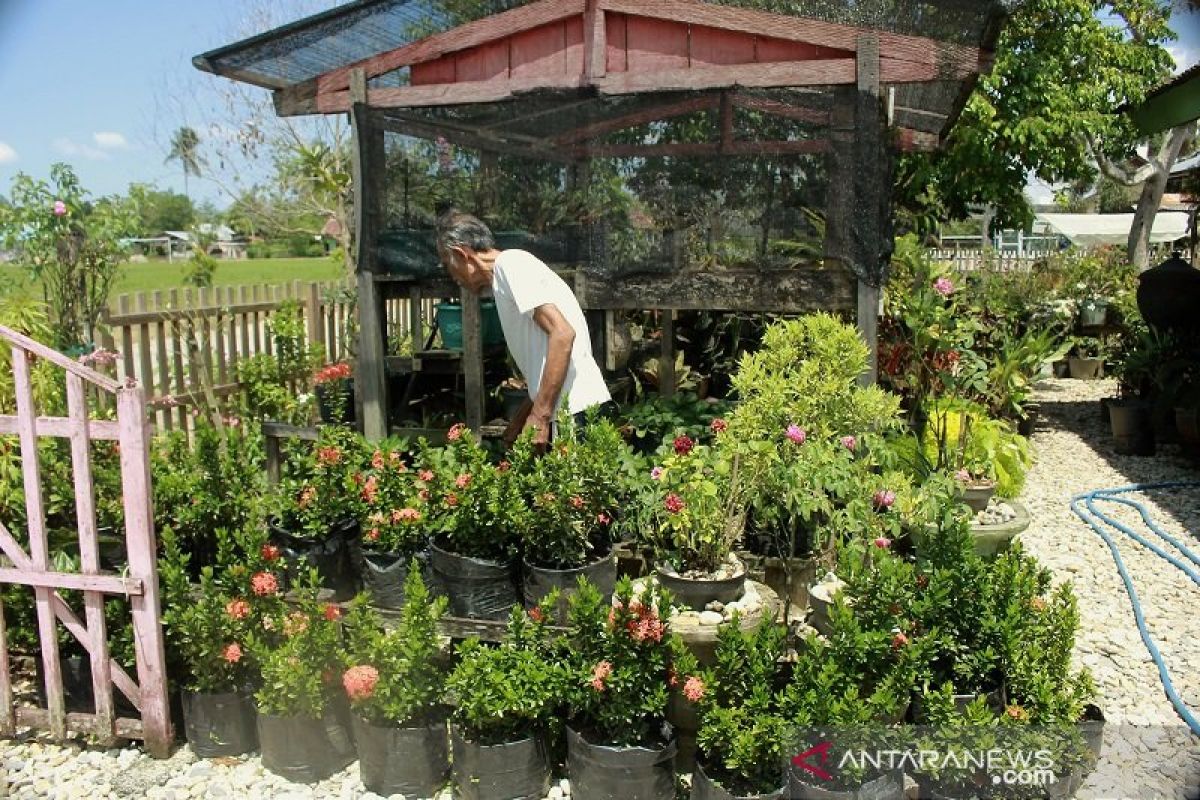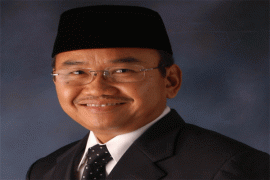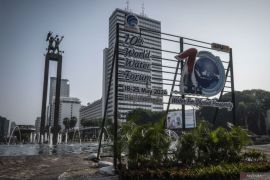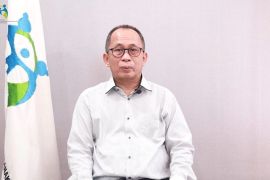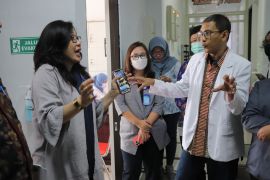Harto Wiyono, 71, was picked up by Civil Service Police Unit members while out in the fields on grounds that guests awaited his arrival at his house.
The tall-heighted man made a dash when the motorbike, ridden by a member of the Civil Service Police Unit, came to a halt on the road in front of his yard. Rushing into the house, he then emerged gleaming to welcome his guests.
"Sorry, I was just out in the field and did not expect guests to arrive," Wiyono remarked while receiving the Antara team at his home on Jalan Sedap Malam, Savana Jaya Village, Waeapo District, Buru Regency.
Wiyono had earlier served term as a political prisoner banished to Buru Island and kept in the Unit IV area, which is currently Desa Savana Jaya.
"While in exile here, the day-to-day tasks covered clearing forests and reeds with bare hands, tending to paddy fields, and building roads and dams using makeshift equipment," he recollected his early days on Buru Island.
Wiyono, along with other political detainees, who, at the end of the 1960s and early 1970s, were exiled to Buru over links to the Indonesian Communist Party, were involved in building houses and places of worship as well as opening and cultivating agricultural land.
Wiyono is one of the 17 ex-political prisoners currently left in Savana Jaya owing to a voluntary decision to lead their remaining lives on Buru Island after freedom was announced in 1979.
Wiyono opted to not go back to his hometown in Solo since he was unaware of where his kin and relatives were in that place.
"I do yearn to go back home. However, I know nothing about where the parents, my two siblings, and their families are," Wiyono stated.
Wiyono was the eldest of three siblings and his two brothers, Supomo and Suwandi, were teens when he was detained on charges of involvement in illegal party activities.
Wiyono's parents too were taken into arrest, but he has no knowledge of where they were banished. Members of his family got scattered.
Nonetheless, Wiyono claimed to not grieve over this matter while being exiled on Buru Island.
"Earlier, other mates would laugh at anyone found to be crying. Hence, we always led a content life and were happy to live during that time," Wiyono remarked while drawing reference to his past incidents in an interview with Antara that security forces and village officials bore witness to and recorded.
Poison and Honey
Wiyono noted that at the start of the exile, locals would deliberately avoid political prisoners since they were viewed as being bad individuals.
During exile, political prisoners were akin to ingesting poison that slowly but surely devours the body every time. These detainees are left to fend for themselves in the face of unforgiving nature, to clear forests and cultivate the land to make it agriculturally productive.
Once the release of political prisoners on Buru Island was announced, some decided to stay put and not go back to their former place of living. Their status then got altered from political detainees to self-employed transmigrants.
As a transmigrant, Wiyono and other ex-political prisoners were entitled to a house and 1/5-hectare yard, 3/4-hectare garden, one hectare rice field, livestock, and some money to begin afresh after being set free.
Those surviving the ordeal were instrumental in developing Buru into an advanced agricultural area.
For Wiyono and his 16 mates, the island of exile turned out to be a serene place for living, having a family, and searching for food.
Like honey, Buru Island draws scores of people looking to lead a better existence.
"Here, until the time you intend to work, it will work; the area is still vast and fertile. Labor and hard work is all that is needed," Wiyono stated.
Quiet Welcoming Elections
Wiyono currently leads a quiet existence in Savana Jaya along with his wife Sumarmi and extended family. He bears three children from his first marriage, two from his current marriage to Sumarmi, and five children that were adopted.
He currently has 18 grandchildren, who are the offspring of his biological and adopted children.
"The house gets overly crowded when all the grandchildren gather here," he stated humorously.
Wiyono's daily routine revolves around spending a part of the day tending to a half-hectare field bearing different varieties of fruits, vegetables, and crops, as well as medicinal plants and ornamental plants in the yard.
Wiyono too senses the palpable enthusiasm and excitement as the other residents of Savana Jaya in the run up to the democratic fiesta and is all set to exercise the right to vote.
Wiyono is upbeat that the general election process would not be marred by acts of mutually disapproving contestants, as well as the spread of misinformation and fake news and expressions of hatred.
"Fortunately, those residing in Savana Jaya remain undeterred by different news shows portraying hate speeches, hoaxes, or disparagement of other supporters," he pointed out.
He remarked that Savana Jaya Village residents largely pay no heed to negative impressions.
"No one here engages in the blame game against one another or circulates fake news. Leading a harmonious, safe, and peaceful existence ranks high among the priorities of Savana Jaya residents," he pointed out.
Wiyono believes that the one to lead the nation in the coming five years must firmly adhere to the principles of Pancasila, be capable of conducting his duties that will draw praises and acclaim, as well as work towards strengthening the state's foundation.
"Indonesia's future leaders must be able to realize social justice for all Indonesians," he affirmed.
Wiyono believes social justice entails equitable cross-sectoral development, with benefits felt by all residents of the country, transcending every societal strata.
"Do not allow the rich to become richer and the poor to become poorer," Wiyono emphasized.
Editor: Suharto
Copyright © ANTARA 2019
